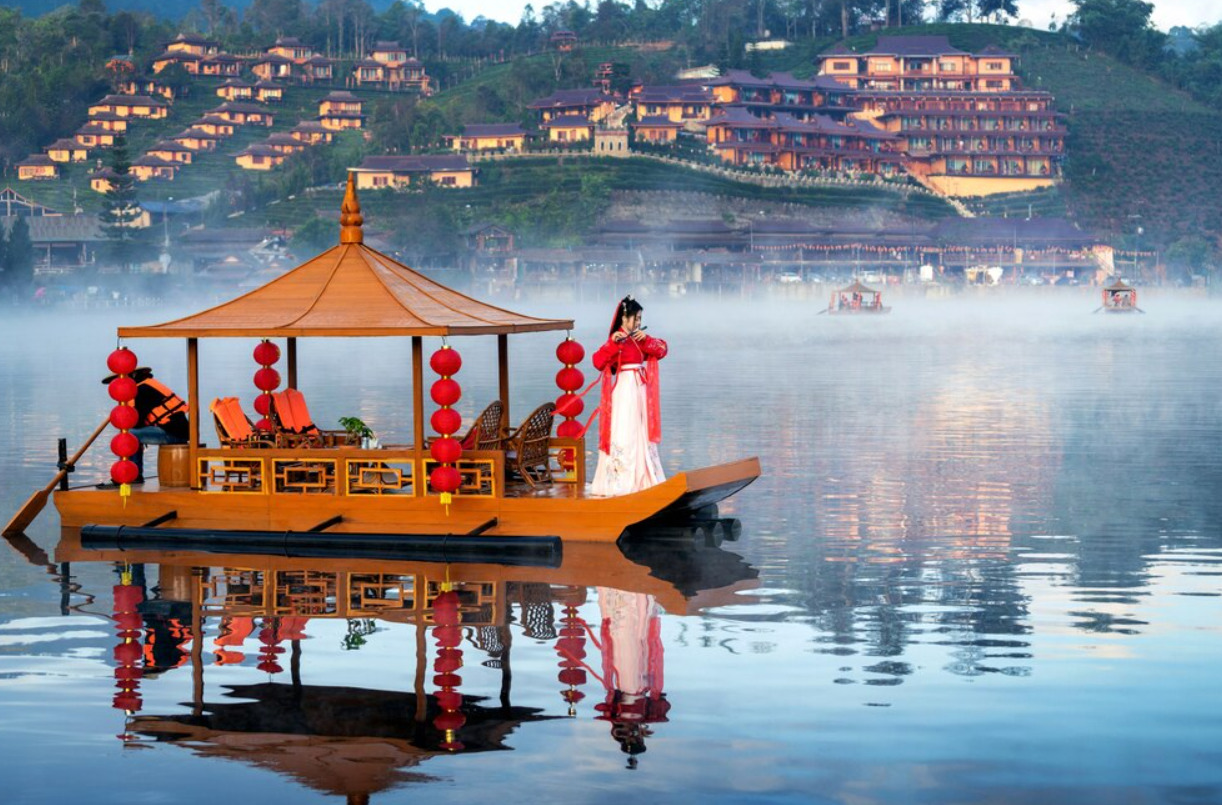Table of Contents
ToggleChina, a vast and culturally rich nation, is known for its deep-rooted traditions and long standing festivals that reflect its vibrant history. One of the most fascinating aspects of Chinese culture is its official holidays, which blend ancient customs with modern celebrations. These holidays not only give citizens time to rest and reconnect with loved ones but also showcase China’s respect for heritage, family, and community.
As we enter 2026, let’s take a closer look at the public holidays and days off in China that mark the calendar throughout the year.
Public Holidays in China 2026
-
New Year’s Day – January 1, 2026 (Thursday)
-
Spring Festival (Chinese New Year) – February 17, 2026 (Tuesday)
-
Qingming Festival (Tomb-Sweeping Day) – April 4, 2026 (Saturday)
-
Labor Day – May 1, 2026 (Friday)
-
Dragon Boat Festival – June 19, 2026 (Friday)
-
Mid Autumn Festival – September 25, 2026 (Friday)
-
National Day – October 1, 2026 (Thursday)
-
Winter Solstice (Dongzhi Festival) – December 22, 2026 (Tuesday)
Public Holidays in Detail
New Year’s Day – January 1, 2026 (Thursday)
Like many countries around the world, China welcomes the new year with celebrations on January 1st. Although not as significant as the Spring Festival, this holiday offers a short break to rest or enjoy social gatherings, concerts, and fireworks in major cities.
Spring Festival (Chinese New Year) – February 17, 2026 (Tuesday)
The Spring Festival, also known as Chinese New Year, is the most important holiday in China. It marks the start of the lunar new year and symbolizes renewal, family unity, and prosperity. In 2026, it falls on February 17, ushering in the Year of the Horse.
Families reunite for festive dinners, exchange red envelopes (hongbao), and light fireworks to ward off bad luck. Streets and homes are adorned with red decorations symbolizing happiness and good fortune. The celebration typically lasts 7 days, making it China’s longest public holiday.
Qingming Festival (Tomb-Sweeping Day) – April 4, 2026 (Saturday)
Qingming Festival, or Tomb-Sweeping Day, is a time for honoring ancestors by visiting graves, cleaning tombstones, and making offerings of food and flowers. It’s also the beginning of spring, when people enjoy outdoor picnics and nature walks.
Labor Day – May 1, 2026 (Friday)
Labor Day celebrates the achievements and contributions of Chinese workers. It is a national holiday, often extended into a long weekend. Many families take this opportunity to travel or enjoy cultural and recreational activities.
Dragon Boat Festival – June 19, 2026 (Friday)
The Dragon Boat Festival, or Duanwu Festival, honors the ancient poet Qu Yuan. The holiday is known for exciting dragon boat races held on rivers and lakes across China, symbolizing teamwork and perseverance. People also eat zongzi, sticky rice dumplings wrapped in bamboo leaves.
Mid-Autumn Festival – September 25, 2026 (Friday)
The Mid-Autumn Festival, also known as the Moon Festival, celebrates the harvest season and the beauty of the full moon. Families gather to admire the moon, share mooncakes, and spend the evening outdoors. It symbolizes reunion, gratitude, and hope.
National Day – October 1, 2026 (Thursday)
National Day marks the founding of the People’s Republic of China on October 1, 1949. It is one of the country’s biggest holidays, kicking off the Golden Week, a seven-day period of national celebrations, parades, fireworks, and travel. Tourist attractions and cities are beautifully decorated with flags and lights.
Winter Solstice (Dongzhi Festival) – December 22, 2026 (Tuesday)
The Winter Solstice Festival celebrates the return of longer days and the balance of yin and yang. Families gather to eat warm dishes like dumplings in the north and tangyuan (glutinous rice balls) in the south. It’s a time for togetherness and appreciation of family warmth during the coldest season.
Conclusion
Public holidays in China 2026 offer a deep reflection of the country’s traditions, values, and collective spirit. From the grand family reunions of Spring Festival to the cultural symbolism of Dragon Boat and Mid Autumn Festivals, each occasion holds a special place in Chinese society.
These holidays not only give citizens a well deserved break but also strengthen family bonds and cultural continuity. Whether you’re living in China or planning to visit, experiencing these holidays firsthand provides an unforgettable insight into the heart of Chinese culture.
